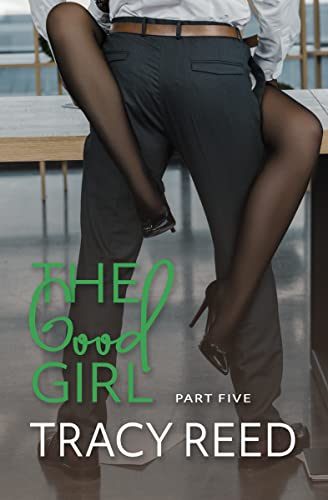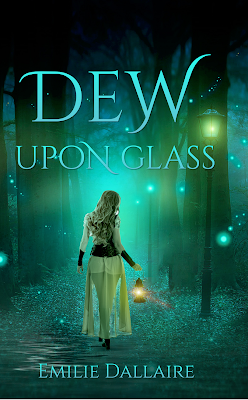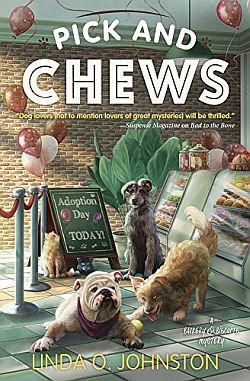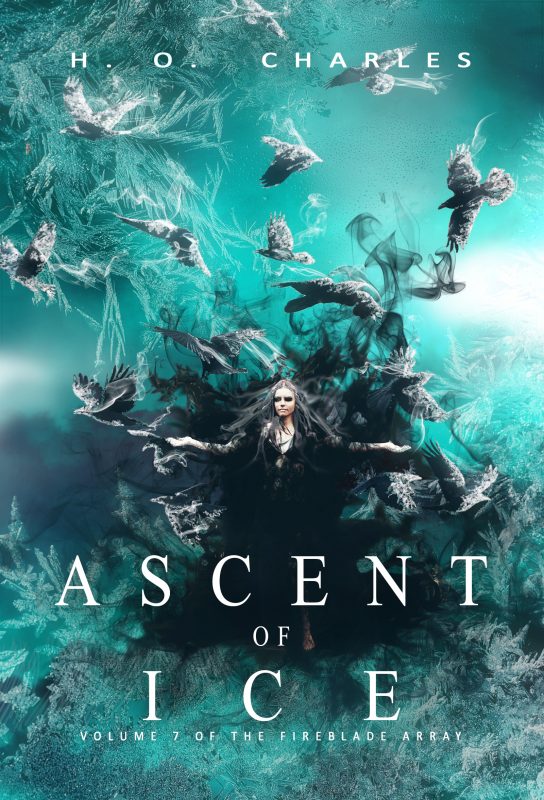Loving Modigliani Book Tour and Giveaway
February 17, 2021 by marianne h donley in category Apples & Oranges by Marianne H. Donley, Rabt Book Tours tagged as #booktour, #magicalrealism, #rabtbooktours @LindaLappin1, @SHB_books, fantasy, paranormal
Paranormal Ghost and Love Story
Historical Paranormal Fiction, Magical Realism, Fantasy Fiction, Literary Fiction
Published: December 2020
Publisher: Serving House Books
A ghost story, love story, and a search for a missing masterpiece.
PARIS 1920 Dying just 48 hours after her husband, Jeanne Hebuterne–wife and muse of the celebrated painter Amedeo Modigliani and an artist in her own right–haunts their shared studio, watching as her legacy is erased. Decades later, a young art history student travels across Europe to rescue Jeanne’s work from obscurity. A ghost story, a love story, and a search for a missing masterpiece.
Loving Modigliani is a genre-bending novel, blending elements of fantasy, historical fiction, gothic, mystery, and suspense.
Praise for Loving Modigliani:
“LOVING MODIGLIANI is a haunting, genre-bending novel that kept me turning pages late into the night” –Gigi Pandian, author of The Alchemist’s Illusion
“Part ghost story, part murder mystery, part treasure hunt, Linda Lappin’s Loving Modigliani is a haunting, genre-bending novel that kept me turning the pages long into the night.” – Best-selling mystery novelist Gigi Pandian
About The Author
Prize-winning novelist Linda Lappin is the author of four novels: The Etruscan (Wynkin de Worde, 2004), Katherine’s Wish (Wordcraft , 2008), Signatures in Stone: A Bomarzo Mystery (Pleasureboat Studio, 2013), and The Soul of Place (Travelers Tales, 2015). Signatures in Stone won the Daphne DuMaurier Award for best mystery of 2013. The Soul of Place won the gold medal in the Nautilus Awards in the Creativity category.
Contact Links
Purchase Links
EXCERPT FROM LOVING MODIGLIANI–PART 3
The Notebooks of Jeanne Hébuterne: 1
Saint-Michel- en-Grève, July 19, 1914
I like to sit here on this rock and look out over the ocean as I scribble in my notebook. I could spend hours, gazing at those inky clouds, drinking in the colors with my eyes and my skin. I love the ocean in all weathers, even like today when the wind is raw and the salt stings in my throat and the mud from the field clings in globs to my shoes and dirties the hem of my cape.
I’ve always been attracted to storms. When I was still very small and we were on holiday in Finistère, I’d slip outside and ramble over towards the headland whenever I heard the wind rising. As soon as Maman saw I was missing, she would send my brother André out to find me. He always knew where to look: perched as close to the edge as I could get. Shouting my name into the wind, he’d run to me through the scrabbly heather.
“Come away from there, Nenette, you’ll fall!” Gently, he’d draw me away from the precipice. But I knew how to keep myself steady: I’d just look down at my shoes on the salt-frosted furze and feel my feet in the earth. Hand in hand, we’d squint out at the waves of steely water. I kept hoping we’d see something burst up from the foam. A whale or a seal. A sunken ship up from the deep, dripping seaweed and barnacles from its sides, a skeleton at the helm!
I can’t explain why I keep watching the horizon, but I feel that my real life is waiting for me out there somewhere across the water. Who am I? Who will I become? Maman says I am going to be beautiful–but that my hips are too round, my face too full, and when I am older, I will have a double chin, like hers. But my eyes are the color of southern seas in summer, changing from green to gold to turquoise. I have seen those waters in the pictures of Gauguin, who is my favorite painter.
I am J.H. and I am sixteen. Everyone has an idea about who I am and what I shall be. For Papa, I will marry an engineer, or perhaps a doctor, like Rodolphe, the young country doctor who treated his grippe last winter, and become a proper wife and mother, accomplished in music, bookkeeping, and domestic skills, like turning tough chunks of old beef into edible stews.
Maman would rather I marry Charles, the son of the neighborhood apothecary, Thibideau, in Rue Mouffetard. He is a friend of André’s and when he comes to visit, he always brings Maman licorice or lavender pastilles, but he is not beautiful like André and doesn’t know anything about art or poetry. He spends hours in the laboratory helping his father make pills and suppositories, and his clothes and hair smell of ether, valerian, and cod liver oil. Maman opens all the windows after he leaves. I cannot imagine living with such a presence, much less being touched by those fingers.
Sometimes after dinner, when André has gone out with his friends, Maman and Papa discuss the merits of both, debating which one would suit me better as a husband. I sit there smiling as I listen, sketching or sewing a hem.
“A doctor is a fine addition to any family,” says Papa.
“But an apothecary will do just as well and if he owns his own shop, why he’ll be richer than a doctor,” says Maman.
They are both so absurd–they never ask me what I think. How can they imagine I’d ever be caught dead with someone like Rodolphe or Charles? The man I marry will be someone special. An artist or a poet. And he must be as beautiful as a god.
Papa thinks women should not work outside the home unless economic circumstances require it. Maman says that teaching is a respectable profession for a young woman if she wants to do something useful in society. She thinks I could be a teacher–of English, perhaps, so she is always making me study English grammar. But I find it hard to concentrate on English verbs. I’d much rather learn Russian. But what I love to do most is paint. It is a passion I share with my brother.
André is studying at the Académie Ranson in Rue Joseph-Bara in Montparnasse, where the Maître, Serusier, says he is very gifted. Over the bed in my room back in Paris, I have hung a painting he made of a poplar tree which he copied from a postcard when he was only sixteen. There is life in that tree, you can feel the leaves flutter as the summer wind shatters the heat and makes shivers run up your arms. When a painting makes you feel, hear, smell and taste, the artist has talent, or so Serusier says.
On every excursion to country fairs or old churches here in Brittany, I buy more postcards for André to copy so he can develop his talent. André plans to become a professional artist — though it’s a secret between us! Papa and Maman don’t know yet that what they believe is merely a hobby will be his career.
André thinks I have talent too. After every lesson at the Académie, he teaches me something new, and this week it’s been about landscapes, but I’d rather paint people than cornfields. In any case, the human body is a sort of landscape. I like to study how our bodies are made, the waves of muscles and hair and the textures and colors of skin. The dimples in elbows and knees fascinate me, like the labyrinths in ear whorls and fingernails. I also like the way clothes fit on bodies and the crisp turnings of caps and collars like the Breton women wear and soft draperies in long clean lines and a bit of fur on a jacket cuff.
André says I should become a clothes and costume designer because I have a way with fabrics. And I love making clothes for myself, though Papa and Maman think my turbans and ponchos are too fanciful. This dress I am wearing I designed and sewed myself, inspired by a Pre-Raphaelite painting. Sometimes I wear my hair in two long braids all the way down to my hips, with a beaded bandeau around my forehead, just like an Indian princess. Other times, when I want to look older, I let it flow loose, under a black velvet cap. I made a promise never to cut it and when I am old enough to have a lover, I will wrap him in my hair and keep him safe.
July 22, 1914
Here in Saint-Michel, every day André and I go out painting morning and afternoon. But if it is raining, he stays home and reads or sketches, but I get restless and have to go walking for an hour or so along the beach, and up to a spot on a cliff where an old paysan keeps his goats. I watch the goats for awhile, then traipse home through the sand and mud, clean my boots, hang my cape in the doorway, and shake the rain from my hair. Tomorrow Papa goes back to Paris and we will follow a few days later. Although I love it here, I admit, I am starting to miss Paris too!
I go straight to the kitchen where fresh sole are sizzling in melted butter and thyme in a skillet on the stove. Maman is grating celery root into a big blue enamel bowl and Celine, the girl who helps in the kitchen, is whipping up crème fraiche and mustard in an old stone crock. The leather-bound volume of Pascal lies closed on the sideboard. Papa has stopped reading aloud for the edification of the ladies and is now absorbed in his newspaper, but I can see the news is upsetting: His pink mouth scowls above his gray goatee. André sits on the edge of a chair, long legs crossed, puffing his new pipe by the open window, reading a book of poems.
“War is coming,” Papa says, rustling his newspaper. “André will have to go.”
“I am not afraid,” André says. His voice, so determined and grown-up, makes me feel proud and scared.
“But I am,” says Maman, “I don’t want my son to go to war. Against the Germans.”
She grates the root vigorously. Flakes fall like snow into the bowl.
“I won’t wait to be conscripted, I will sign up and defend my country,” says André.
Papa stares at him, proud and apprehensive, then folds the newspaper and puts it aside.
“And you, Achille?” my mother asks.
“All able-bodied men will be mobilized,” my father replies.
Mama puts down the celery root. I can feel she is sick with fear. We always have similar reactions. Our minds work the same. I go over to her and take her hand. Her fingers are cold and damp from the celery root; her wrists are threaded with fine lavender veins. I cannot believe that both my father and brother will be sent to war, though I know all over France, men will be leaving their families. I squeeze her hand to give us both courage.
We eat our lunch in silent dread. The food tastes like ashes in our mouths.
July 23, 1914
Why am I a person of such extremes? When I am here in Brittany walking in the wind, I am happy for an hour or two, but then I feel gloomy and begin to miss the little alleys around Rue Mouffetard, the noise and turbulence, the bookstalls, street vendors, and cafes. But once I am back there again, soon enough I feel I can’t breathe, even the Luxembourg Gardens seem like a prison to me, and I long to escape to the seaside. It’s always back and forth with me, I never can decide which place makes me happier. But now that we know that André and Papa will have to go war, I don’t want to go back to Paris at all. Why does André have to enlist in the army? I asked him this afternoon while we stood on the rocks above Ploumanach where we had come to spend the day painting the pink cliffs.
“A man has his duties, Jeanne. Otherwise, he wouldn’t be a man. Making a choice and sticking with it is what gives a shape to our life.” He was painting a brooding seascape in bold lines of cobalt, with a fine thread of yellow foam scribbled across the sand.
I added the last strokes to my watercolor. “I know I change my mind too often.”
“That is because you are only sixteen-years-old, Jeanne, and you don’t know yet what you want out of life.”
“And you, aged philosopher? Do you know what you want out of life?”
“Yes, I want to paint! Doesn’t matter where. Here in Brittany, in Paris, maybe when the war is over I will go to Morocco or Egypt…”
“To paint blazing deserts, camels, exotic women in yellow silk veils?”
He laughed. “You would look charming in a yellow silk veil. But show me what you have done today.”
I step back from my easel to let him have a look at my work, holding my breath as I watch his face. I can guess his reaction by the way his mouth tightens at the corner and his eyes squint. He is never very generous with praise. But today he says —
“Not bad, for a girl of your age. You have captured the lay of the shore in that sweeping line quite admirably. Your brushwork in the clouds here is a bit clumsy, but the colors are subtle. This violet, tangerine, and gray truly give the sense of an impending storm.” He holds up the picture to study it closer, then nods. “There is feeling and emotion in it.”
The ocean wind scrambles a loose strand of my hair, blowing it into my mouth and eyes. “Passion.” I suggest, brushing the hair from my face. “Violet and tangerine are the colors of passion.”
André rolls his eyes. “Peut-être. But why not red, scarlet, orange, fuchsia? Besides what would you know about passion?”
I shake my head and do not answer, kicking at a stone with the scuffed toe of my shoe.
Finally, I say, “Who will teach me to paint if you go off to war?” But what I mean is, “How can we possibly live without you?”
“I know you are sad that I have to go. All of you.” He blinks and turns away so I won’t see his face. “They say a war can’t last long. I will probably be home again in a matter of weeks.”
We are silent for awhile, looking out at the ocean. Far below the pinkish cliffs, we can hear the waves pounding the shore. Along the yellow beach, a little boy in a red jacket runs along the sand with a prancing dog. It must be the lighthouse keeper’s son and I wonder if the keeper will have to go to war, like André and Papa, and if the lighthouse will be left deserted.
I swirl my brush in black and purple and daub some more paint in my clouds. “Perhaps I could enroll in a school to study painting while you are gone.” I say this partly to change the subject, but also because it is something I have been thinking about.
André looks at me, surprised. Clearly, it never crossed his mind that I might want to go to art school. Now he ponders the idea and says at last, “Why not? Many girls enroll in the School of Decorative Arts, these days. There are courses for decorators at the academy of Montparnasse in Rue de la Grande Chaumière. You might learn a skill you could practice at home.”
“But I want to paint portraits and nudes.” He raises his eyebrow at that. “I want to make art! Not decorate teapots with rosebuds. I want to be a painter! A real painter.”
“Being a painter is a very hard life even for a man.”
“But Marie Laurencin and Susan Valadon, they are successful women painters.”
“Yes, but for a woman to be a painter, she must be rich and have an independent income! Or she must be the lover of a very important painter herself, and being a painter’s mistress or lawful wife is almost worse for a woman than being a painter. I don’t say this to discourage you from painting. But it cannot become your profession. Maman and Papa would never want you to lead such a life.”
“But you will lead an artist’s life,” I object.
“Girls don’t become painters for the same reason they don’t become soldiers, or chefs or the President of the Republic.”
“And why is that?”
André sucks in his cheeks and doesn’t answer straightaway. The granite cliffs seem to take on animal shapes as the violet dusk deepens around us. Overhead, screeching gulls reel back to their high nests. My brother puts away his paints and folds up his easel. It is almost time to go home.
“If you don’t know the answer to that question, it means you haven’t grown up enough.”
Why must he always treat me like a child? I turn on my heels and stalk off towards the old lighthouse, leaving my easel and paint box behind, forgetting, just like the child he accused me of being, that this might be our last lesson for a long time to come. I glance back to see him packing up my things, then gazing out at the ocean. He looks so miserable and lonely that I run back up to him and throw my arms around him.
“Let’s never argue my little Nenette!” he says, “You will be what you wish! The gods will decide.” He kisses the top of my head.
Affiliate Links
A Slice of Orange is an affiliate with some of the booksellers listed on this website, including Barnes & Nobel, Books A Million, iBooks, Kobo, and Smashwords. This means A Slice of Orange may earn a small advertising fee from sales made through the links used on this website. There are reminders of these affiliate links on the pages for individual books.
Search A Slice of Orange
Find a Column
Archives
Featured Books
THE GOOD GIRL PART FIVE
I eloped with a man I thought I knew, but didn't.
More info →DEW UPON GLASS
After everything they have gone through. Why now? Why this?
PICK AND CHEWS
Carrie Kennersly tries to help her veterinarian boyfriend when he’s under suspicion of murder...Is he a keeper, or should she let him go off-leash for good?
More info →Newsletter
Contributing Authors
Search A Slice of Orange
Find a Column
Archives
Authors in the Bookstore
- A. E. Decker
- A. J. Scudiere
- A.J. Sidransky
- Abby Collette
- Alanna Lucus
- Albert Marrin
- Alice Duncan
- Alina K. Field
- Alison Green Myers
- Andi Lawrencovna
- Andrew C Raiford
- Angela Pryce
- Aviva Vaughn
- Barbara Ankrum
- Bethlehem Writers Group, LLC
- Carol L. Wright
- Celeste Barclay
- Christina Alexandra
- Christopher D. Ochs
- Claire Davon
- Claire Naden
- Courtnee Turner Hoyle
- Courtney Annicchiarico
- D. Lieber
- Daniel V. Meier Jr.
- Debra Dixon
- Debra H. Goldstein
- Debra Holland
- Dee Ann Palmer
- Denise M. Colby
- Diane Benefiel
- Diane Sismour
- Dianna Sinovic
- DT Krippene
- E.B. Dawson
- Emilie Dallaire
- Emily Brightwell
- Emily PW Murphy
- Fae Rowen
- Faith L. Justice
- Frances Amati
- Geralyn Corcillo
- Glynnis Campbell
- Greg Jolley
- H. O. Charles
- Jaclyn Roché
- Jacqueline Diamond
- Janet Lynn and Will Zeilinger
- Jaya Mehta
- Jeff Baird
- Jenna Barwin
- Jenne Kern
- Jennifer D. Bokal
- Jennifer Lyon
- Jerome W. McFadden
- Jill Piscitello
- Jina Bacarr
- Jo A. Hiestand
- Jodi Bogert
- Jolina Petersheim
- Jonathan Maberry
- Joy Allyson
- Judy Duarte
- Justin Murphy
- Justine Davis
- Kat Martin
- Kidd Wadsworth
- Kitty Bucholtz
- Kristy Tate
- Larry Deibert
- Larry Hamilton
- Laura Drake
- Laurie Stevens
- Leslie Knowles
- Li-Ying Lundquist
- Linda Carroll-Bradd
- Linda Lappin
- Linda McLaughlin
- Linda O. Johnston
- Lisa Preston
- Lolo Paige
- Loran Holt
- Lynette M. Burrows
- Lyssa Kay Adams
- Madeline Ash
- Margarita Engle
- Marguerite Quantaine
- Marianne H. Donley
- Mary Castillo
- Maureen Klovers
- Megan Haskell
- Melanie Waterbury
- Melisa Rivero
- Melissa Chambers
- Melodie Winawer
- Meriam Wilhelm
- Mikel J. Wilson
- Mindy Neff
- Monica McCabe
- Nancy Brashear
- Neetu Malik
- Nikki Prince
- Once Upon Anthologies
- Paula Gail Benson
- Penny Reid
- Peter Barbour
- Priscilla Oliveras
- R. H. Kohno
- Rachel Hailey
- Ralph Hieb
- Ramcy Diek
- Ransom Stephens
- Rebecca Forster
- Renae Wrich
- Roxy Matthews
- Ryder Hunte Clancy
- Sally Paradysz
- Sheila Colón-Bagley
- Simone de Muñoz
- Sophie Barnes
- Susan Kaye Quinn
- Susan Lynn Meyer
- Susan Squires
- T. D. Fox
- Tara C. Allred
- Tara Lain
- Tari Lynn Jewett
- Terri Osburn
- Tracy Reed
- Vera Jane Cook
- Vicki Crum
- Writing Something Romantic
Affiliate Links
A Slice of Orange is an affiliate with some of the booksellers listed on this website, including Barnes & Nobel, Books A Million, iBooks, Kobo, and Smashwords. This means A Slice of Orange may earn a small advertising fee from sales made through the links used on this website. There are reminders of these affiliate links on the pages for individual books.













































